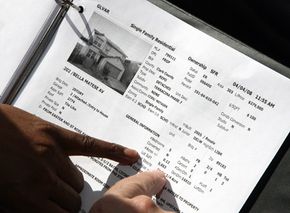You've found your dream home. The asking price is $300,000 -- an amount you've already been pre-approved for by your bank. But is the home really worth that amount? That's the question at the heart of the home appraisal. The worth, or value of the property, will determine how much a lender is willing to give you to buy that particular piece of real estate.
This all-important step in getting the financing you need is the home appraisal -- an oftentimes-confusing part of the mortgage process in which both buyer and seller must depend on the expert opinion of a stranger. A real estate appraisal is simply that -- the expert opinion of a certified, state-licensed professional who determines the value of a piece of property. If your $300,000 dream home is really worth only $200,000, then the home is overpriced.
Advertisement
A home appraisal also protects the bank from getting stuck with property that's worth less than they've invested. And it protects you from paying too much for a house simply because it was love at first sight. The home appraisal is a no-nonsense factor in a decision that is often emotional for the buyer.
A home appraisal is not the same thing as an inspection. If you're buying a home, you'll want to hire an experienced home inspector to point out any potential problems that could turn into costly nightmares in the future. Property appraisers will likely make note of any obvious issues, but they won't test your heat and air, check the chimney or determine if your plumbing is up to code. That's the job of the inspector.
In this article, we'll take a look at the methods appraisers use to value property and find out what's included in the appraisal report. We'll debunk some common myths -- for example, will dirty dishes in the sink affect your home appraisal? What about a wet basement? We'll find out where the appraiser gets the information that determines the value of the property. And, if you get a low appraisal, what happens next?
Advertisement


